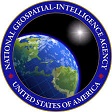NGA awards four contracts to enhance artificial intelligence and automation
 The National Geospatial-Intelligence Agency awarded four contracts in January and February designed to enhance artificial intelligence and automation to improve geospatial-intelligence analysis, the agency announced February 15.
The National Geospatial-Intelligence Agency awarded four contracts in January and February designed to enhance artificial intelligence and automation to improve geospatial-intelligence analysis, the agency announced February 15.
The contracts are part of an effort to bolster NGA’s ability to meet current and future customer demands. The awards were based on responses to the artificial intelligence and automation topic under the Boosting Innovative Geospatial-Intelligence (GEOINT) broad agency announcement written to solicit input from industry and academia that is open for three years.
“This research provides NGA with great opportunities to explore how humans and machines can team together to sift, sort, and process in a data rich environment,” said Amanda Weaver, senior GEOINT officer. “Analysts seek new, different and efficient ways to process information for customer consequence.”
NGA awarded research contracts to Concurrent Technologies Corporation, HRL Laboratories, Raytheon, and Soar Technology, Inc., in January 2017.
“We are very excited about the upcoming work from these selected vendors that will surely set the foundation for future AVA capabilities in the NSG,” said Robert Arbetter, NGA’s program manager of the Analyst Virtual Assistant (AVA).
The specifics of each of the four research contracts are:
• CTC ($498,242) will advance an interdependent human-machine network concept designed to enable task automation and management, cloud-wide as opposed to within traditional desktop and server-based environments.
• HRL ($499,677) will develop an adaptive system that will identify correlations between analysts’ interactions and automatically share relevant data across like-user groups. The system will autonomously address mundane user tasks and simultaneously streamline workflows to allow analysts more time to address challenging intelligence problems and develop products.
• Raytheon ($496,525) will develop automated solutions designed to help recognize cognitive bias in analytic decision-making. These machine learning-based solutions will recommend new analytic hypothesis for consideration and autonomously provide workflow recommendations and suggested courses of action to help analysts become aware of unconscious bias when making key judgments.
• Soar Technology ($499,947) will develop and evaluate autonomous ‘virtual assistant’ technologies designed to help integrate disparate service oriented and cloud-based architectures. These new technologies will facilitate improved information sharing, information management and analyst understanding of large datasets. Additionally, the endeavor will provide automated mining of streamed data to alert analysts to anomalous activity that could be of interest.
As part of the BAA, periodically new topics will post on FedBizOpps.gov as a way to seek creative solutions to unique GEOINT challenges at NGA.
Source: NGA








